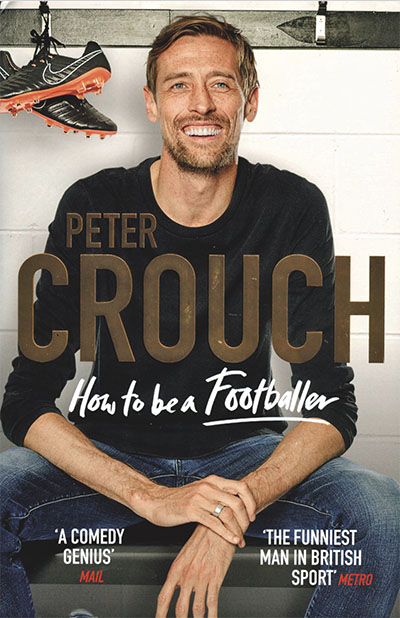
Ebury Press, £20
Reviewed by Huw Richards
From WSC 382, January 2019
Buy the book
Peter Crouch’s long career has been full of pleasant surprises, not least, one suspects, to himself. Watching him as a teenager at QPR it was evident that he had much more to offer than that outlandish physique, but not to the extent that one might have anticipated him playing in two World Cups for England.
This highly readable book follows that pattern. The amiable self-awareness evident in his famous answer to being asked what he would be if not a footballer (“a virgin”) would doubtless inform a decent conventional autobiography, and maybe still will. In going a different way, he could have settled for laddish anecdotage, but has done infinitely better.
There is an echo of the Secret Footballer, but here we know both who is telling the stories and whom they concern. Crouch himself is often the fall-guy, and stories of others’ misadventures are generally told in a tone of sympathetic understanding rather than condemnation.
That this book is entertaining, informative and sometimes extremely funny owes much to co-writer Tom Fordyce, also a collaborator in the podcast that to some extent parallels it. But a co-writer is only as good as the material provided by the chap with his name on the cover, and Crouch clearly has gifts of observation and recall that might in another life have made him an excellent reporter.
There are sharp insights into players and coaches. As a long-term Harry Redknapp-sceptic I was struck by both the most persuasive statement in favour of him as a manager yet seen, and a couple of anecdotes suggesting that even admirers should not place unreserved trust in him. The concluding chapter on Steven Gerrard should have a future in football anthologies.
Crouch is generous in spirit, but not without an edge. The quiet observation that with Fabio Capello it was “always his way that was right” says in six words more than some critics manage in whole chapters. There is a hint of hinterland in his liking for Neville Southall’s combative Twitter postings on social issues.
He is particularly good at analysing defenders both as individuals – with fine vignettes on, among others, Ledley King and Vincent Kompany – and as a class whom he notes rarely own ostentatious cars: “The further towards goal you start, the more you are attracted to bright and shiny things.” He is observant about change, both on and off the field, such as a cultural shift to “bling rather than booze”.
Most of all, he fulfils the promise of his title. This book will entertain a broad swath of fans, but the people who really need it are young players seeking a guide both to the weirdness of top-class football as an environment and how to avoid it turning them into arseholes. It is informed by his confession that “I have never carried a Louis Vuitton man-bag which contained nothing but my own personal hairdryer, but it was close”. That we should all be as self-aware and likeable…